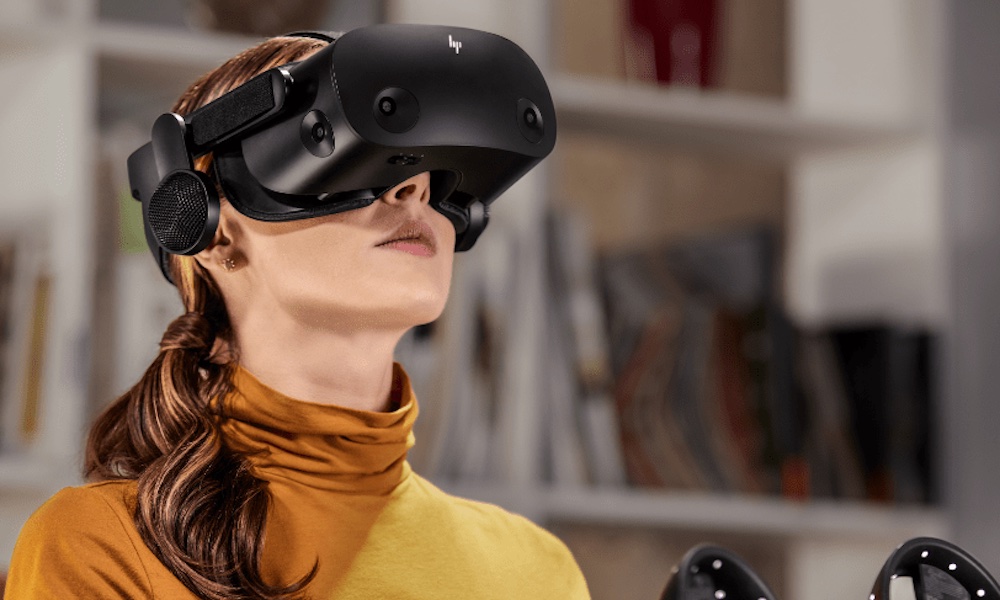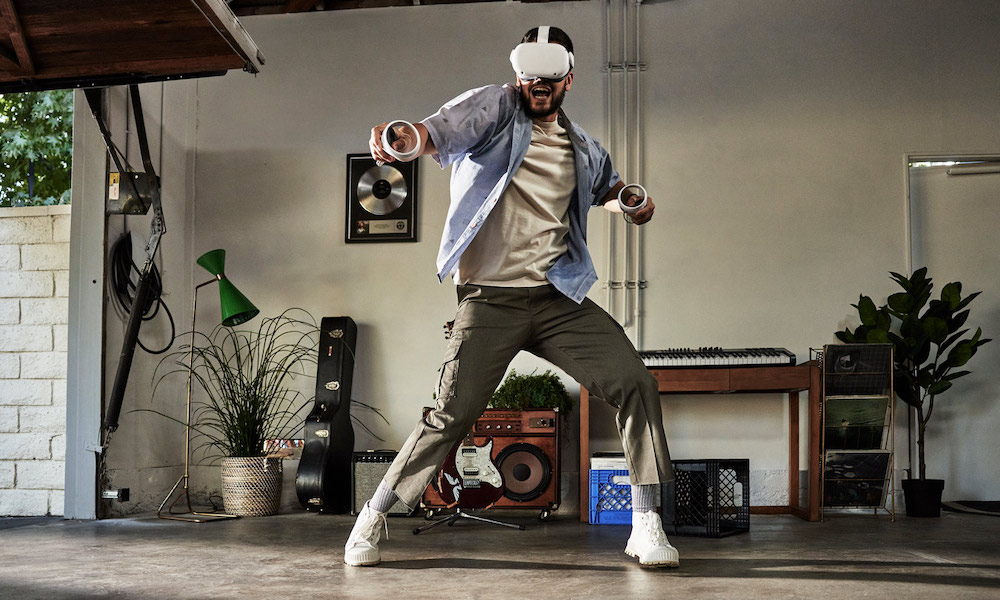Apple’s ‘Reality Pro’ Could Be the ‘Last Hope’ for Consumer AR/VR Headsets
 Credit: HP
Credit: HP
Toggle Dark Mode
Multiple rumors are pointing to Apple unveiling a groundbreaking AR/VR mixed-reality headset at its Worldwide Developers Conference (WWDC) in June, but many industry watchers, from analysts to Apple’s own employees, are wondering whether it truly will usher in the next generation of mobile computing.
In a post on Medium, well-known analyst Ming-Chi Kuo added his voice to the chorus, sharing that the production levels for current consumer AR/VR headsets are woefully low, and there’s no indication that these will become “the next star product in consumer electronics” any time soon.
If there’s any chance of that happening, Kuo says, it will have to come from Apple, the only company on the playing field with any hope of convincing investors that it could be worthwhile to back such a device.
Apple’s announcement event is likely the last hope for convincing investors that the AR/MR headset device could have a chance to be the next star product in consumer electronics.
Ming-Chi Kuo
Kuo goes on to add that many analysts are overestimating how many components will be needed from suppliers for AR/VR headset devices in the next few years. He cites Sony and Meta as examples of two big players that scaled back production in 2023 or shipped fewer headsets than expected in 2022.
A recent survey from Piper Sandler reported by CNBC appears to back this up, indicating that out of all the teens who own VR headsets, very few use theirs all that regularly.
Out of the sample of teens polled, only 29% own a VR device, compared to 87% who own iPhones. However, only 4% of teens who already own a VR headset actually use it daily. In other words, of the more than 5,600 teens surveyed, only about 60-70 could be considered VR enthusiasts.
To us, the lukewarm usage demonstrates that VR remains ‘early days’ and that these devices are less important than smartphones.
Piper Sandler
The sample group also showed minimal interest in a future AR/VR headset. Only 7% of those polled said they planned to purchase any kind of headset versus 52% who said they were unsure or uninterested in such a device.
The lack of uptake by teens may be a strong sign of things to come. While AR/VR headsets are typically out of the price range of most young people, that’s countered by the fact that the overwhelming majority of those who own these expensive devices aren’t really using them.
To be fair, with a price tag expected to run north of $3,000, Apple’s first-generation headset will likely be aimed more at professional and industrial use. However, Apple is a consumer-focused company, so there’s no doubt its long-term goal is to release a product for everyday use.
As we reported last month, Apple’s plans have also been met with some skepticism inside its own walls, although the company’s executives are said to be under no illusions about what the market will be for its new headset. It’s likely to promote it more as the first step into the future of AR/VR technology than a practical product for most folks.
It’s a journey that has to start somewhere, and Apple is also used to having its first-generation products mocked. Even the original iPhone wasn’t immune to that; in a comment that hasn’t aged particularly well, Microsoft’s then-CEO Steve Ballmer infamously laughed at the iPhone, telling USA Today in 2007 that there was “no chance” that the iPhone would “get any significant market share.”
There’s no chance that the iPhone is going to get any significant market share. No chance. It’s a $500 subsidized item. They may make a lot of money. But if you actually take a look at the 1.3 billion phones that get sold, I’d prefer to have our software in 60% or 70% or 80% of them, than I would to have 2% or 3%, which is what Apple might get.
Steve Ballmer, Microsoft CEO (2000–2014)
Needless to say, it’s too early to dismiss Apple’s headset ambitions. While it’s a safe bet that the first-generation product isn’t going to knock it out of the park like some are expecting, Apple is famous for playing the long game, and many of today’s skepticism could come across as very quaint ten or fifteen years down the road.








